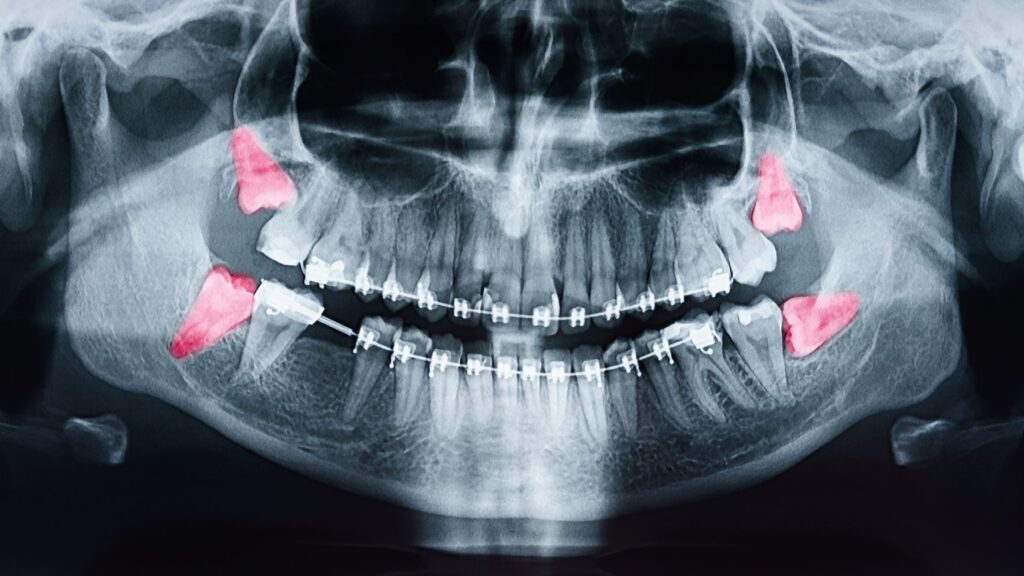
Are you a teen or young adult who has been experiencing jaw pain or a persistent toothache? If so, you might be dealing with wisdom teeth. It’s believed that our ancient ancestors likely needed these additional molars to replace any that were damaged in their youth. Today, they’re considered a vestigial feature because they’re no longer necessary for survival.
On top of that, wisdom teeth are extracted more often than not because they are notorious for putting your dental health at risk. Continue reading to learn three reasons your dentist might recommend removing them!
Concern #1: Impaction
Did you know that our predecessors had larger jawbones that were more angular? Over time, humans evolved rounder, smaller mouths to account for shifts in diet and lifestyles. That means your mandible might not be large enough to accommodate these extra molars when they arrive.
It’s common for wisdom teeth to become trapped in your gums or only partially erupt because they don’t have the space needed to grow correctly. Unfortunately, this makes it nearly impossible to brush and floss them thoroughly, so they frequently develop decay or disease that can impact your connective tissues and jawbone if left unaddressed.
Concern #2: Overcrowding
Because there’s not as much room in your arches as there once was, your wisdom teeth could push their neighbors out of alignment as they try to clear your gums. Overcrowded teeth are vulnerable to oral issues like tooth decay and gum disease because brushing and flossing them is more challenging when you can’t access all sides. If plaque and bacteria accumulate, it can weaken your enamel or result in periodontal issues.
If your dentist is worried that your wisdom teeth are approaching at an odd angle, they might recommend removing them before they can push your other pearly whites out of their proper positions.
Concern #3: Bite Misalignment
Wisdom teeth are notorious for shoving your teeth out of alignment, which can also impact your bite. You could also develop a malocclusion (bite misalignment) if your upper and lower arches no longer come together as they should when you close your mouth.
This might not seem like a big deal at first, but over time it can cause headaches, neck tension, and earaches. Furthermore, you could eventually develop a stiff or locked jaw that makes eating and speaking painful.
There are other reasons that your dentist might suggest this procedure, too. If you’re unsure why it was recommended, the best way to find out is to ask them!
About the Author
Dr. Luke Vernon takes pride in helping people of all ages build and maintain happy, healthy smiles. He earned his dental doctorate from the Indiana University School of Dentistry and has committed countless hours to ongoing education. Today, he offers a full array of services to meet all your dental needs under one roof with flexible hours so you can find an appointment time that works for you. He combines a compassionate approach with state-of-the-art technology to enhance your comfort while increasing the accuracy of treatment results. If you have problematic wisdom teeth, you can request an appointment on the website or call (720) 902-8080.
